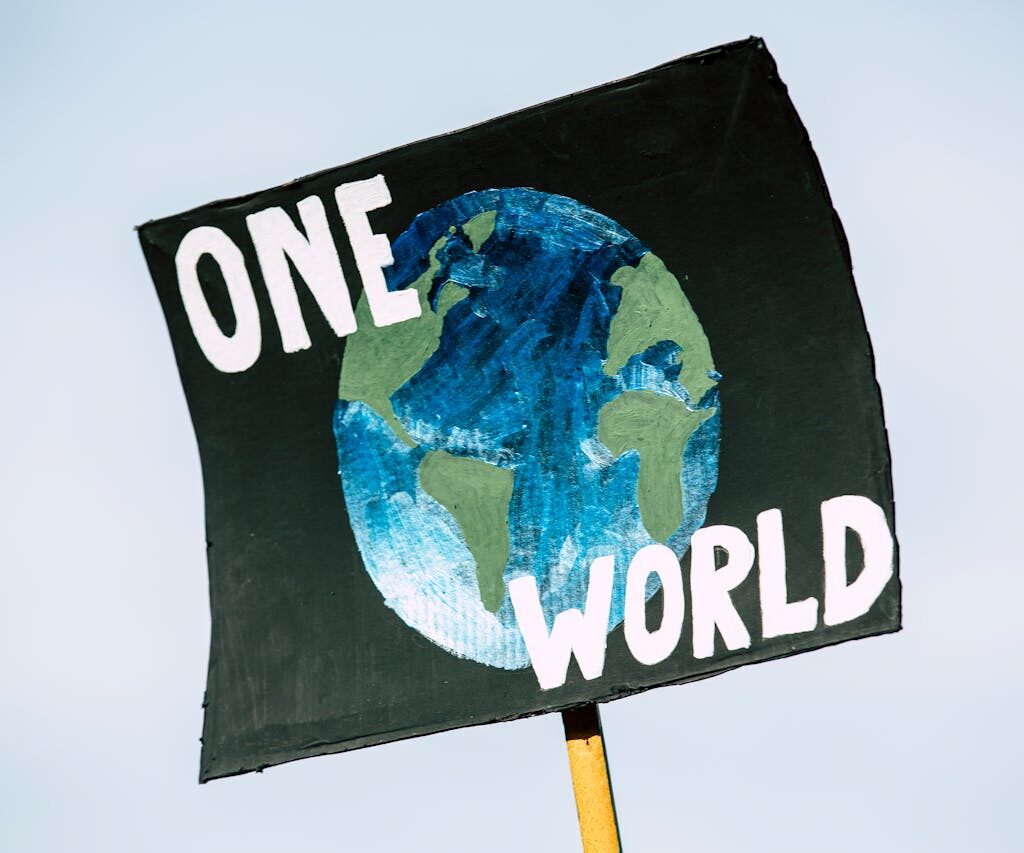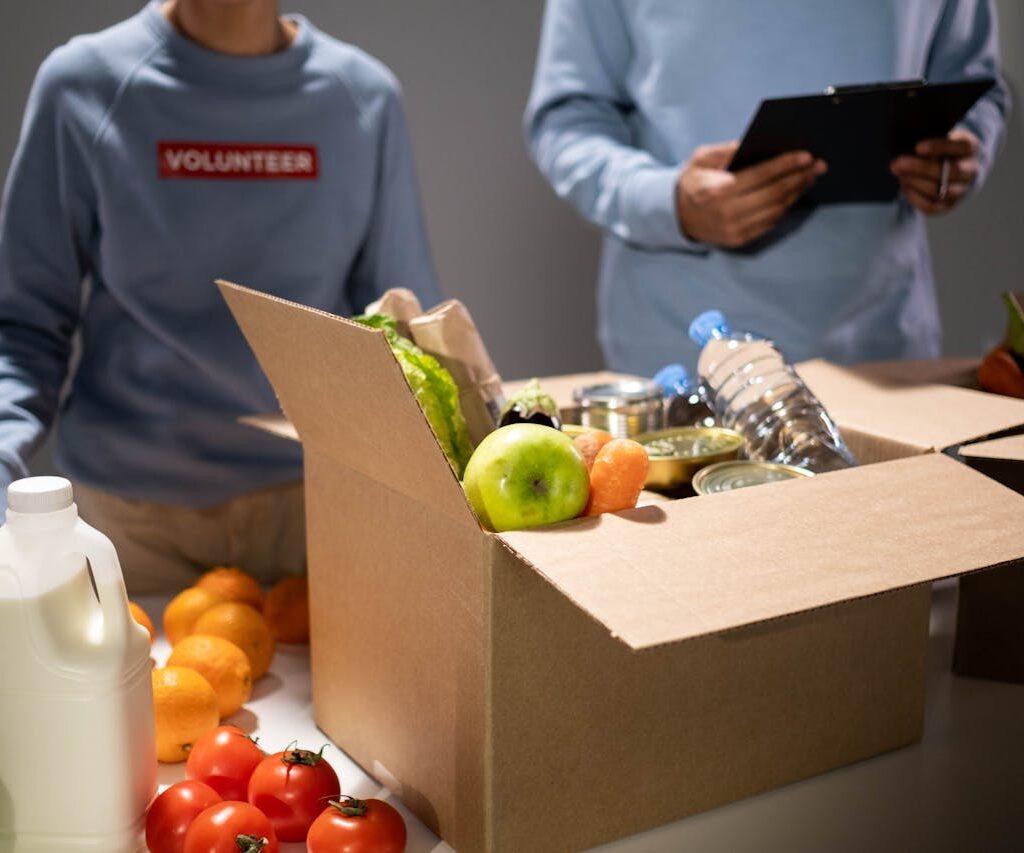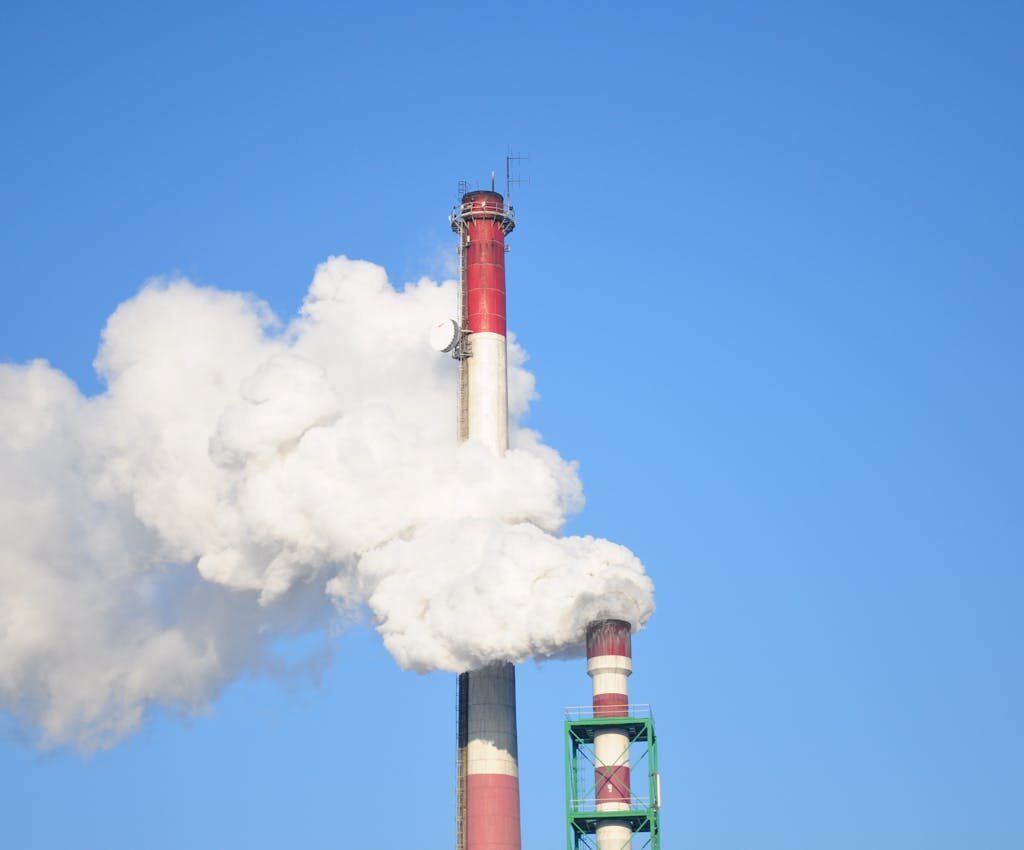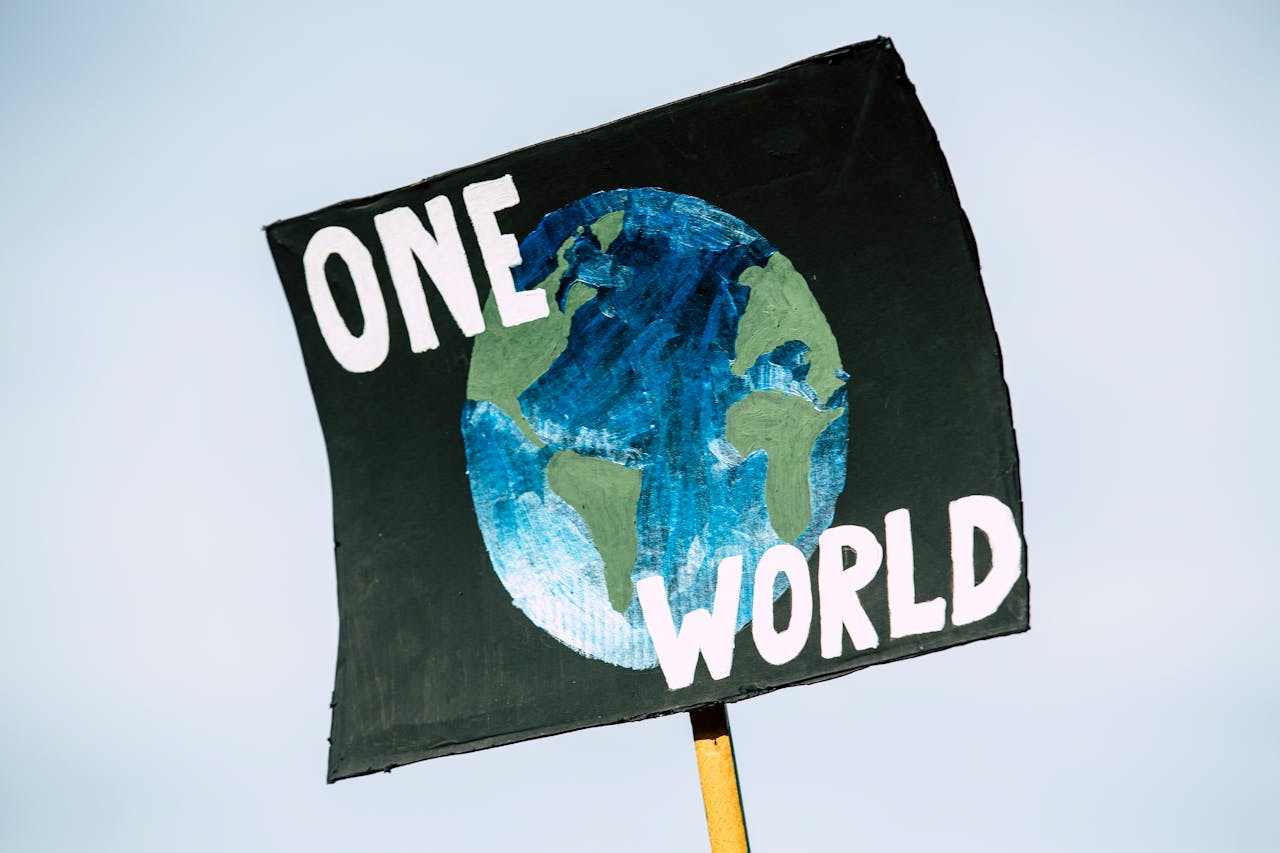Climate change is no longer a distant threat—it is reshaping our world today, with profound implications for global food security. As temperatures rise, weather patterns become more erratic, and natural disasters grow in frequency, the ability to produce, distribute, and access food is increasingly at risk. Food security, defined as the availability and access to sufficient, safe, and nutritious food, is under threat from the cascading effects of climate change. This article explores the challenges posed by climate change to food security and highlights innovative solutions to safeguard our food systems for future generations.

How Climate Change Threatens Global Food Production
One of the most direct impacts of climate change on food security is its effect on crop yields. Rising temperatures can stress crops, reduce growth periods, and lower productivity. For example, staple crops like wheat, rice, and maize are highly sensitive to temperature changes. Studies show that for every 1°C increase in global temperatures, yields of these crops could decline by 5-10%. This decline is particularly alarming for regions already struggling with food insecurity, such as sub-Saharan Africa and South Asia.
Save The Planet: 10 Ways to Reduce Your Carbon Footprint

Climate change is also intensifying extreme weather events, including droughts, floods, and storms, which disrupt agricultural activities. Droughts can devastate crops and livestock, while floods can destroy farmland and infrastructure. For instance, the 2022 floods in Pakistan wiped out millions of acres of crops, leaving millions food insecure. These events not only reduce food production but also make farming more unpredictable, threatening the livelihoods of millions of smallholder farmers worldwide.
The Impact of Climate Change on Food Distribution and Access
Climate change doesn’t just affect food production—it also disrupts food distribution. Extreme weather can damage transportation networks, delay shipments, and increase spoilage. For example, hurricanes and typhoons can destroy roads and ports, making it difficult to move food from farms to markets. These disruptions can lead to food shortages, particularly in regions reliant on imports.
As climate change reduces food production and disrupts supply chains, food prices are likely to rise. Higher prices disproportionately affect low-income households, exacerbating economic inequality and food insecurity. For example, the 2021 drought in Brazil caused global coffee prices to spike, impacting both producers and consumers. Such price volatility makes it harder for vulnerable populations to access nutritious food, further undermining food security.

Innovative Solutions to Address Food Security in a Changing Climate
To combat the effects of climate change on food security, farmers are adopting sustainable practices that enhance resilience. Techniques like crop rotation, agroforestry, and conservation tillage can improve soil health, conserve water, and reduce greenhouse gas emissions. For example, in Kenya, farmers are using drought-resistant crops and rainwater harvesting to adapt to changing weather patterns. These practices not only boost productivity but also protect ecosystems, creating a win-win for food security and the environment.
Technology is playing a crucial role in addressing food security challenges. Precision agriculture, which uses GPS and sensors to optimize farming, can reduce waste and increase yields. Similarly, vertical farming and hydroponics allow food to be grown in controlled environments, reducing reliance on traditional farmland. Innovations like these are essential for feeding a growing global population in the face of climate change.
The Role of Policy and Global Cooperation in Ensuring Food Security
Addressing the intersection of climate change and food security requires coordinated action at all levels. Governments must implement policies that promote sustainable agriculture, invest in climate-resilient infrastructure, and support vulnerable communities. International cooperation is also critical. Initiatives like the Paris Agreement and the United Nations’ Sustainable Development Goals (SDGs) provide frameworks for collective action. By working together, the global community can build a more sustainable and equitable food system.
A Call to Action for a Sustainable Future
Climate change poses a significant threat to food security, but it is not an insurmountable challenge. By adopting sustainable farming practices, leveraging technology, and fostering global cooperation, we can build a resilient food system that withstands the impacts of climate change. However, time is of the essence. Governments, businesses, and individuals must act now to protect food security for current and future generations. The choices we make today will determine whether we can ensure a world where everyone has access to safe, nutritious, and affordable food.




Göktürk su kaçak tespiti Su kaçağı tespiti teknolojisi giderek daha uygun fiyatlı hale geliyor. http://yousefgorji.ir/?p=4115
Пытаюсь разобраться в финансах. Что посоветуете? https://avtolombard-13.ru
rxr21q
myhuxd
s54y5b
jsdk7n
pbq4xq
Very good https://lc.cx/xjXBQT
jcwp4r
I love the live roulette—live vibe! razor returns
Итак, прокуратор желает знать, кого из двух преступников намерен освободить Синедрион: Вар-раввана или Га-Ноцри? Каифа склонил голову в знак того, что вопрос ему ясен, и ответил: – Синедрион просит отпустить Вар-раввана. накрутка поведенческих факторов программа москва дешево Пилат поднял мученические глаза на арестанта и увидел, что солнце уже довольно высоко стоит над гипподромом, что луч пробрался в колоннаду и подползает к стоптанным сандалиям Иешуа, что тот сторонится от солнца.
услуги по продаже аккаунтов магазин аккаунтов социальных сетей
маркетплейс аккаунтов биржа аккаунтов
магазин аккаунтов купить аккаунт
маркетплейс для реселлеров платформа для покупки аккаунтов
покупка аккаунтов покупка аккаунтов
аккаунт для рекламы маркетплейс аккаунтов соцсетей
Social media account marketplace Account Store
Sell Pre-made Account Account Acquisition
Account Trading Service Gaming account marketplace
Account Sale Secure Account Purchasing Platform
Account Buying Platform Buy Pre-made Account
Find Accounts for Sale Purchase Ready-Made Accounts
Account Selling Platform Secure Account Sales
Ready-Made Accounts for Sale Account Market
Account Sale Account Buying Service
Sell Account Accounts for Sale
account trading platform account store
purchase ready-made accounts online account store
account catalog verified accounts for sale
account acquisition profitable account sales
account buying platform buy accounts
account catalog sell pre-made account
account trading platform account sale
gaming account marketplace https://accountsmarketdiscount.com
ready-made accounts for sale ready-made accounts for sale
marketplace for ready-made accounts sell account
account marketplace online account store
buy pre-made account buy account
website for selling accounts gaming account marketplace
website for buying accounts sell accounts
marketplace for ready-made accounts purchase ready-made accounts
account marketplace account market
accounts market profitable account sales
guaranteed accounts marketplace for ready-made accounts
account sale database of accounts for sale
marketplace for ready-made accounts secure account purchasing platform
marketplace for ready-made accounts website for buying accounts
sell accounts marketplace for ready-made accounts
account selling service marketplace for ready-made accounts
account trading platform accounts market
account catalog accounts marketplace
account market account selling service
account buying service account exchange
account exchange service accounts market
account marketplace accounts market
find accounts for sale account market
website for selling accounts https://accounts-marketplace.live/
online account store https://social-accounts-marketplace.xyz
account trading platform account marketplace
account marketplace accounts market
website for buying accounts account market
profitable account sales https://accounts-marketplace.online
buy and sell accounts accounts marketplace
accounts marketplace https://accounts-marketplace-best.pro/
маркетплейс аккаунтов соцсетей https://akkaunty-na-prodazhu.pro/
продать аккаунт https://rynok-akkauntov.top/
маркетплейс аккаунтов маркетплейсов аккаунтов
продать аккаунт https://akkaunt-magazin.online/
маркетплейс аккаунтов https://akkaunty-market.live/
магазин аккаунтов https://kupit-akkaunty-market.xyz/
маркетплейс аккаунтов соцсетей маркетплейсов аккаунтов
маркетплейс аккаунтов соцсетей https://online-akkaunty-magazin.xyz
pi9apg
маркетплейс аккаунтов https://akkaunty-dlya-prodazhi.pro
продать аккаунт https://kupit-akkaunt.online
buy facebook accounts cheap https://buy-adsaccounts.work
buy facebook profiles buy-ad-accounts.click
buy a facebook account facebook ad accounts for sale
buy facebook old accounts https://buy-ads-account.click
buy facebook ad account buy facebook old accounts
buying facebook accounts buying fb accounts
buy account facebook ads buy accounts facebook
Эта познавательная публикация погружает вас в море интересного контента, который быстро захватит ваше внимание. Мы рассмотрим важные аспекты темы и предоставим вам уникальныеInsights и полезные сведения для дальнейшего изучения.
Подробнее можно узнать тут – https://medalkoblog.ru/
buying facebook ad account https://buy-ad-account.click
facebook ad account for sale https://ad-accounts-for-sale.work
google ads accounts for sale buy google ad account
buy google ads agency account https://buy-ads-accounts.click
fb account for sale https://buy-accounts.click
google ads account seller https://ads-account-for-sale.top
buy google ads invoice account https://ads-account-buy.work/
buy old google ads account https://buy-ads-invoice-account.top
buy google ads account https://buy-ads-agency-account.top
google ads account seller https://sell-ads-account.click
google ads agency accounts https://ads-agency-account-buy.click
buy bm facebook buy-business-manager.org
google ads agency accounts https://buy-verified-ads-account.work/
facebook business manager for sale buy-bm-account.org
facebook business manager for sale https://buy-verified-business-manager-account.org/
buy business manager account buy-verified-business-manager.org
buy facebook business manager facebook bm buy
buy verified bm facebook buy bm facebook
buy facebook business manager account buy-business-manager-verified.org
fb bussiness manager https://buy-bm.org
buy facebook verified business account buy-business-manager-accounts.org
tiktok ads account buy https://buy-tiktok-ads-account.org
business manager for sale buy facebook verified business account
tiktok ads account buy https://tiktok-ads-account-buy.org
buy tiktok ad account https://tiktok-ads-account-for-sale.org
tiktok ads account for sale https://tiktok-agency-account-for-sale.org
tiktok ad accounts https://buy-tiktok-ad-account.org
tiktok ads account for sale https://buy-tiktok-ads-accounts.org
tiktok ads agency account https://tiktok-ads-agency-account.org
buy tiktok ad account buy tiktok ads accounts
tiktok ads account for sale https://buy-tiktok-ads.org
Pingback: rybelsus 3 mg
n6zccs
I don’t think the title of your article matches the content lol. Just kidding, mainly because I had some doubts after reading the article.
I don’t think the title of your article matches the content lol. Just kidding, mainly because I had some doubts after reading the article.
n33tzh
levitra original rezeptfrei online levitra prescription levitra 20mg preludemd
I don’t think the title of your article matches the content lol. Just kidding, mainly because I had some doubts after reading the article.
Thank you for your sharing. I am worried that I lack creative ideas. It is your article that makes me full of hope. Thank you. But, I have a question, can you help me?
yyp1c7
Thank you for your sharing. I am worried that I lack creative ideas. It is your article that makes me full of hope. Thank you. But, I have a question, can you help me?
Thanks for sharing. I read many of your blog posts, cool, your blog is very good.
Thanks for the article. Here’s more on the topic https://cultureinthecity.ru/
mzlk1s
dhbw6q
lmzhv3
аренда экскаватора москва оси [url=https://arenda-ehkskavatora-1.ru/]аренда экскаватора москва оси[/url] .
8jzmiq